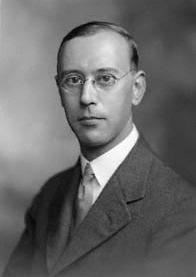
Plucknett contrasts the flexibility and adaptability of customary law with the rigidity and remoteness of state legislation (1956)
Found in: A Concise History of the Common Law
In his history of the English common law Theodore Plucknett (1897-1965) stresses how flexible and adaptable customary law was in the middle ages. Unlike modern legislation created by the state, medieval communities were constantly changing their “customs” to suit their changing needs:
Law
The middle ages seem to show us bodies of custom of every description, developing and adapting themselves to constantly changing conditions. We can see the first beginnings of a custom and trace its rise and modification; we can even see it deliberately imported from one place to another; it is a common sight to see a group of townspeople examine the customs of more advanced communities, choose the one they like best, and adopt it en bloc as their own. Indeed nothing is more evident than that custom in the middle ages could be made and changed, bought and sold, developing rapidly because it proceeded from the people, expressed their legal thought, and regulated their civil, commercial and family life. The custom of a mediaeval community may well have been much more intimately a product of the work and thought of those who lived by it, than is a modern statute enacted by a legislature whose contact with the public at large is only occasional.